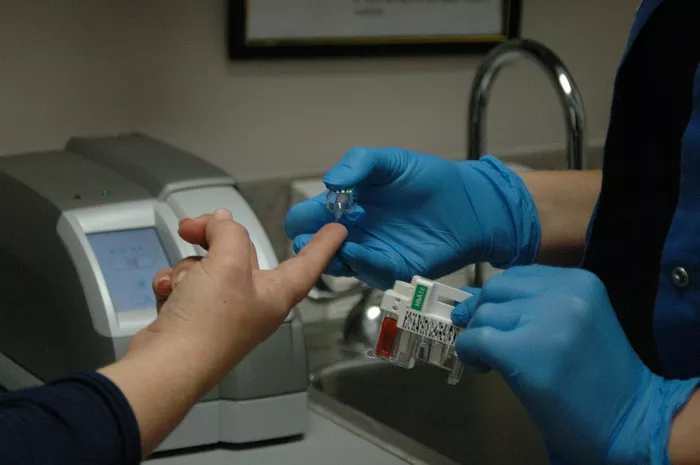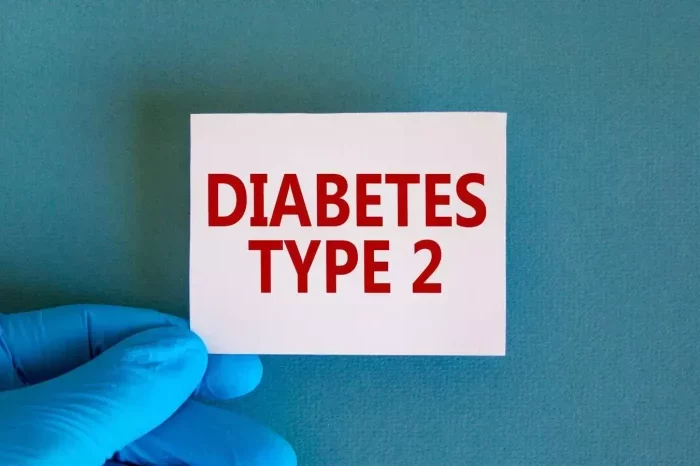Managing blood sugar levels is a crucial aspect of controlling diabetes, whether you are newly diagnosed or have been living with the condition for years. While medication plays an essential role in managing diabetes, a balanced, nutritious diet is equally vital. Certain foods have proven beneficial for lowering sugar levels, helping to maintain a stable glycemic index, reduce insulin resistance, and keep blood sugar within the target range. In this article, we will delve into the best foods to lower sugar levels, providing insights into their health benefits and the mechanisms behind their effectiveness.
Understanding Diabetes and Blood Sugar Management
Before discussing the foods that can help lower sugar levels, it’s important to understand diabetes and the role blood sugar management plays in its treatment. Diabetes is a chronic condition that affects the way your body metabolizes glucose (sugar). There are two primary types of diabetes:
Type 1 Diabetes: An autoimmune condition where the body attacks insulin-producing cells in the pancreas, making it difficult for the body to produce insulin.
Type 2 Diabetes: A condition where the body becomes resistant to insulin, or the pancreas cannot produce enough insulin to maintain normal blood glucose levels.
Both types of diabetes can lead to complications if blood sugar is not properly controlled. This can lead to conditions like heart disease, kidney damage, and nerve damage. Keeping blood sugar levels in check through diet, exercise, and proper medication can greatly reduce the risk of such complications.
The Role of Diet in Managing Diabetes
A healthy, well-balanced diet is one of the most powerful tools in managing diabetes. The goal is to choose foods that are low on the glycemic index (GI), rich in fiber, and contain healthy fats and proteins. These foods help to regulate blood sugar levels and prevent spikes. Additionally, foods rich in vitamins, minerals, and antioxidants support the body in managing inflammation, oxidative stress, and overall health.
Best Foods to Lower Sugar Levels
Let’s explore the top foods known to help regulate blood sugar levels and improve insulin sensitivity.
1. Leafy Greens
Leafy green vegetables, such as spinach, kale, and collard greens, are incredibly beneficial for people with diabetes. These vegetables are packed with vitamins A, C, and K, folate, and fiber while being very low in calories and carbohydrates. High fiber content slows the absorption of sugars into the bloodstream, preventing spikes in blood sugar levels after meals.
Leafy greens are also rich in magnesium, a mineral known for its role in improving insulin sensitivity. Studies have shown that increasing magnesium intake may help reduce the risk of developing Type 2 diabetes and improve blood sugar control in those who already have the condition.
2. Non-Starchy Vegetables
Non-starchy vegetables, such as broccoli, cauliflower, zucchini, and bell peppers, are another excellent choice for controlling blood sugar levels. These vegetables are low in carbohydrates and high in fiber, helping to keep blood sugar levels stable.
They also provide essential nutrients, including antioxidants and anti-inflammatory compounds, which are important in the management of diabetes. Consuming a variety of non-starchy vegetables helps support the overall function of the digestive system, reduces inflammation, and improves insulin sensitivity.
3. Berries
Berries, such as strawberries, blueberries, raspberries, and blackberries, are rich in antioxidants, particularly anthocyanins, which are believed to help reduce blood sugar levels and insulin resistance. Despite their natural sweetness, berries have a low glycemic index and high fiber content, making them an excellent choice for diabetes management.
Research has shown that regular consumption of berries may help improve insulin sensitivity and lower the risk of Type 2 diabetes. Berries also provide vitamin C, which plays a vital role in immune function and reducing oxidative stress.
4. Whole Grains
Unlike refined grains, whole grains like quinoa, brown rice, barley, and oats are packed with fiber and essential nutrients. Whole grains have a lower glycemic index, which means they cause slower, more gradual increases in blood sugar compared to processed grains.
The fiber in whole grains helps regulate blood sugar levels by slowing down the digestion and absorption of carbohydrates. Whole grains also help prevent insulin resistance, a key factor in the development of Type 2 diabetes.
5. Legumes
Legumes, including lentils, chickpeas, black beans, and kidney beans, are excellent sources of protein, fiber, and complex carbohydrates. Due to their high fiber content, legumes are digested more slowly, helping to prevent rapid spikes in blood sugar levels.
In addition to stabilizing blood sugar, legumes have been shown to improve insulin sensitivity and reduce the risk of cardiovascular disease, which is common among individuals with diabetes.
6. Avocados
Avocados are rich in monounsaturated fats, which are known to improve heart health and reduce inflammation. These healthy fats also help regulate blood sugar levels by slowing the absorption of sugar into the bloodstream.
Furthermore, avocados are low in carbohydrates and high in fiber, making them an ideal choice for stabilizing blood sugar. Studies have suggested that consuming avocados may improve insulin sensitivity and reduce the risk of metabolic syndrome, which is closely linked to Type 2 diabetes.
7. Nuts and Seeds
Nuts and seeds, such as almonds, walnuts, chia seeds, and flaxseeds, are packed with healthy fats, fiber, protein, and essential nutrients like magnesium. These foods have a low glycemic index, making them ideal for preventing blood sugar spikes.
Magnesium, in particular, plays a crucial role in regulating blood sugar levels and improving insulin sensitivity. Several studies have found that individuals with higher magnesium intake have better blood sugar control and a lower risk of developing Type 2 diabetes.
8. Cinnamon
Cinnamon is a spice that has been shown to help lower blood sugar levels by improving insulin sensitivity. It contains bioactive compounds, such as cinnamaldehyde, which may enhance insulin function and reduce blood sugar levels after meals.
Incorporating cinnamon into your diet can be as simple as adding it to smoothies, oatmeal, or even savory dishes. A small amount of cinnamon each day has been linked to improved blood sugar control in individuals with both Type 1 and Type 2 diabetes.
9. Fatty Fish
Fatty fish, such as salmon, mackerel, sardines, and herring, are rich in omega-3 fatty acids. Omega-3s have anti-inflammatory properties and are beneficial for improving insulin sensitivity and reducing blood sugar levels.
Consuming fatty fish regularly can help lower the risk of developing Type 2 diabetes and protect against cardiovascular diseases, which are more common in individuals with diabetes. These fish also provide a good source of lean protein, which helps stabilize blood sugar and reduce hunger.
10. Apple Cider Vinegar
Apple cider vinegar (ACV) is often praised for its potential to improve blood sugar control. Several studies suggest that consuming ACV before meals may help reduce blood sugar spikes by improving insulin sensitivity.
The acetic acid in ACV has been shown to slow the digestion of carbohydrates, preventing rapid increases in blood sugar after eating. Additionally, ACV may help improve fat metabolism and promote weight loss, both of which are important in managing Type 2 diabetes.
11. Sweet Potatoes
Sweet potatoes are a healthier alternative to regular potatoes and are an excellent source of complex carbohydrates, fiber, and antioxidants. Their high fiber content helps slow the absorption of sugar into the bloodstream, preventing blood sugar spikes.
Sweet potatoes have a lower glycemic index than white potatoes, making them a suitable food for people with diabetes. They also contain beta-carotene, an antioxidant that helps protect the body against oxidative stress and inflammation.
12. Garlic
Garlic is a powerful food that has been shown to have numerous health benefits, including the ability to lower blood sugar levels. It contains compounds like allicin, which can help improve insulin sensitivity and reduce blood sugar levels.
Some studies suggest that consuming garlic regularly may lower both fasting blood sugar and post-meal blood sugar levels. Garlic also has anti-inflammatory properties, which are important in managing the chronic inflammation associated with diabetes.
13. Green Tea
Green tea is well-known for its numerous health benefits, including its potential to help lower blood sugar levels. Green tea is rich in polyphenols, particularly epigallocatechin gallate (EGCG), which has been shown to improve insulin sensitivity and reduce blood sugar.
Drinking green tea regularly may also help with weight management, another key factor in controlling blood sugar levels. Additionally, green tea is a rich source of antioxidants that help protect the body against oxidative stress and inflammation.
14. Mushrooms
Mushrooms are low in carbohydrates and rich in fiber, making them a great addition to a diabetes-friendly diet. They are also high in vitamins and minerals, including vitamin D, potassium, and antioxidants.
Certain types of mushrooms, such as shiitake, maitake, and reishi, have been shown to improve insulin sensitivity and lower blood sugar levels. Mushrooms also contain beta-glucans, which are known to support immune function and help regulate blood sugar.
Conclusion: A Balanced Approach to Blood Sugar Control
Incorporating these foods into your daily diet can help lower blood sugar levels and improve overall health. However, it’s essential to remember that managing diabetes requires a comprehensive approach that includes regular physical activity, stress management, and appropriate medication as prescribed by a healthcare provider.
A diet rich in whole, unprocessed foods—especially those high in fiber, healthy fats, and antioxidants—can make a significant difference in blood sugar control. By prioritizing the foods discussed in this article, individuals with diabetes can take control of their health and improve their quality of life.
Always consult with your healthcare provider or a registered dietitian before making any significant changes to your diet, especially if you have diabetes or other health conditions. With the right combination of food, exercise, and medical support, managing diabetes becomes not just manageable but also empowering.
Related topics:
Is the Intermittent Fasting Diet Safe for Diabetics?





















